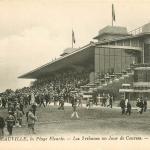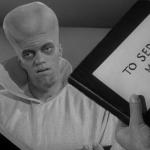Death is the great leveler, not only in status but also personal animus. The death of someone despised requires putting some of that despite on hold, and possibly even overhauling past evaluations of the perceived antagonist. This observation may even apply to Donald Trump if he dies before Christ returns. Writers of obituaries are the people who do actually write the first draft of history and their judgments need to transcend what journalists and op-ed writers may have written about a controversial public figure. Will that happen for Trump? Maybe not. But if the window into the offices of the New York Times obituary department is accurate in this film (highly recommended), chances are even Donald Trump will receive a fairer estimate in death than he did in life.
The way that death can rehabilitate an identity commonly regarded as offensive was recently on display in those very Times when the newspaper wrote about two white men, who converted to Christianity (seemingly evangelicalism). One was B. J. Thomas. The other was Gavin MacLeod. One a pop singer, the other a television actor. Here is how the Times rendered the religion that for the past four years has drawn a kind of opprobrium that only the most bigoted Protestants used to direct at Roman Catholics.
On Thomas:
Despite the persistence and severity of his alcohol and drug use, Mr. Thomas’s recordings remained a constant on the pop chart for the next decade. “Rock and Roll Lullaby,” a Top 40 hit in 1972, featured Duane Eddy on guitar and backing vocals from Darlene Love and the Blossoms. Three years earlier, Mr. Thomas had enjoyed an extended run at the Copacabana in New York, brought about by the runaway success of “Hooked on a Feeling.”
He started on the path to recovery after converting to Christianity in the mid-70s, a period in which he also reconciled with his wife, Gloria, after repeated separations. In 1977, following a year or so in recovery, he sang at the memorial service for Presley, whose death that year had largely been attributed to his excessive use of prescription medications.
Mr. Thomas continued to make albums and tour into the 2000s. Over the years he also sang and testified at the evangelical crusades of Billy Graham and other large religious gatherings.
On MacLeod:
After his divorce, he married Patti Kendig, a dancer, in 1974. They also divorced, in early 1982, but remarried in 1985, by which time they had both become born-again Christians. Mr. MacLeod documented their story, as well as his decades-long struggle with alcoholism, in a 1987 book, “Back on Course: The Remarkable Story of a Divorce That Ended in Remarriage.”
…Mr. MacLeod became active in religious-oriented entertainment, hosting programs on the Trinity Broadcasting Network and starring in Christian-themed films like “Time Changer” (2002) and “The Secrets of Jonathan Sperry” (2008).
His later television work also included guest-starring roles on “The King of Queens,” “Jag,” “Touched by an Angel” and “Oz,” the HBO prison drama. In 2010, according to his autobiography, Mr. MacLeod quit television in the middle of an audition for an episode of “Cold Case” and returned to what he said was his greatest professional love: theater. He did do some television work after that, but most of his work for the rest of his life was in stage productions in the Los Angeles area.
Granted, not much commentary in either obit about the depth of faith in either Thomas or MacLeod. But neither do the obituaries engage in the kind of innuendo that lurks in most reporting on white evangelical Protestants. Both pieces are respectful of the persons and their activities — even faith.
Death has a way of bringing out the best in humans.












